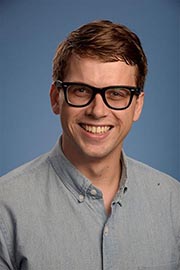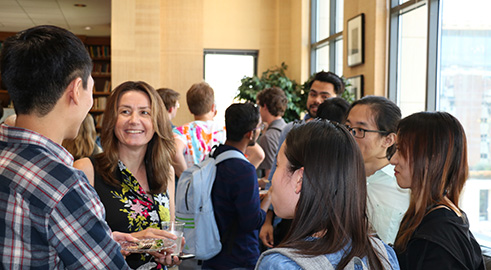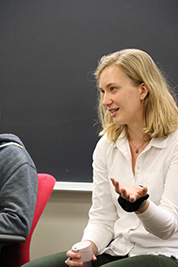The Computational Science, Engineering, and Mathematics Doctoral Program is an interdisciplinary degree, providing students expertise in multiple disciplines while pursuing research at the forefront of computational science.
The Computational Science, Engineering, and Mathematics Master's Program is a two-year program providing students with mathematical and computational foundations in preparation for industry careers or future study in the field of computational science, engineering and mathematics.
The Computational Medicine Portfolio prepares UT graduate students to collaborate with the medical community on interdisciplinary research in computational medicine. Learn more →
The CSEM graduate program is unique in its interdisciplinary emphasis, residing within the Oden Institute and drawing its faculty from 24 academic departments. This interdisciplinary focus provides a rich environment in which students, faculty, and researchers from a variety of backgrounds and academic disciplines interact and collaborate. Our students conduct research in a broad range of areas including: scientific computing, uncertainty quantification, machine learning, numerical analysis, optimization, visualization, computational medicine, computational geosciences, computational materials, computational life sciences, computational physical sciences, computational mechanics, computational mathematics and computational engineering.
The Oden Institute offers two programs for prospective graduate students: The PhD program which includes advanced coursework in applied mathematics, computer science, and fields representing the student’s chosen application area; and the Master’s program, which is a two-year course of study providing students with mathematical and computational foundations in preparation for industry careers or future study in the field of computational science, engineering and mathematics.
As a supplement to the graduate programs, the Oden Institute also supports the Computational Medicine Portfolio program which is open to all graduate students at UT Austin. Portfolio programs allow students to obtain transcriptable credentials in cross-disciplinary fields while completing their graduate degree. The Computational Medicine Portfolio is well suited for students whose interests reside within specific subdisciplines of the medical field, which include Cardiovascular, Oncology, and Neurology.
The Oden Institute is a pioneer in the field of computational science and engineering and our faculty are renowned for their contributions to the field. Students in the CSEM Program work with our faculty to conduct challenging interdisciplinary research at the forefront of computational science. Students have access to state-of-the-art computing resources, including the Texas Advanced Computing Center (TACC), the Oden Institute’s on-site high performance computing systems, and a state-of-the-art visualization lab.
Prospective students may contact the CSEM Graduate Coordinator for more information about our programs.
There are no updates as of Wednesday, March 4, 2026.
Explore how to apply, admissions FAQs, and other resources ↓.
Overview and requirements of the PhD program
Guidelines and checklist for the upcoming fall application season
Information on scholarships and assistantships
Explore how students get involved around campus
Frequently asked questions on applying and admissions
Explore courses offered at the Oden Institute
Our students' success can be measured in a variety of ways. While enrolled in the program, our students excel among their peers in the classroom, within their research groups, within the Oden Institute, and within the university as a whole. CSEM students are involved in the academic community, with a significant percentage of students contributing to their respective fields through publications, presentations, attending professional meetings, and taking leadership positions in professional societies.
Our students have been consistently recognized for their outstanding work and potential, as recipients of prestigious national and international fellowships, including:
Many novel and important computational techniques have been developed or improved by CSEM students in their work. These tools have application in many related areas, and so have broad impact on analysis, modeling, and simulation. CSEM doctoral dissertations have made new and significant discoveries in a number of important areas, including:
Upon graduation, our students have gone on to successful careers in academia and industry. These graduates have attested to the positive impact their participation in the CSEM Program has had on their careers.

Harrington Fellow Maximilian Bremer

CSEM Orientation Reception 2019

Gopal Yalla receives SIAM Award

CSEM students at Oden Institute Holiday party

Annual retreat at Oden Ranch

Peter O’Donnell Jr. Building for Applied Computational Engineering and Sciences

Anna Yesypenko speaking with prospective CSEM students